The Postgraduate Diploma in Sustainable Development programme kicked off in February and welcomed 44 new students who are working professionals and recent graduates from diverse sectors, locally and abroad.
Orientation and welcome
The programme kicked off with a 3-day Orientation programme, which set the tone for the collaborative, creative and care-centred teaching and learning approach. Orientation also included a tour of the Stellenbosch University main campus, where students were familiarised with the programme’s home at the Centre for Sustainability Transitions, and the various learning services available to them.
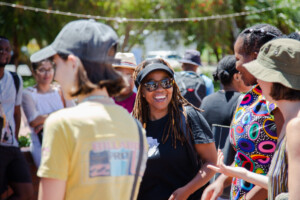
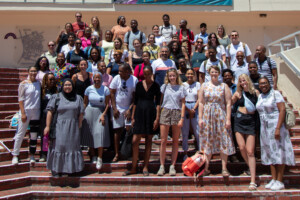
Students at Stellenbosch University main campus after orientation sessions at Stellenbosch University Library
Foundation module – Sustainable Development
Orientation was followed by the first foundation module, Sustainable Development. This module spanned two intensive weeks and covered a broad range of topics related to the emergence of the sustainability polycrisis that impacts our planet, through to imagining the ways we could implement alternatives. The module introduces students to the skills, knowledge and competencies we need to contribute meaningfully to creating just and equitable futures.
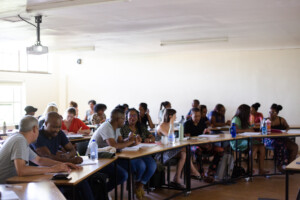
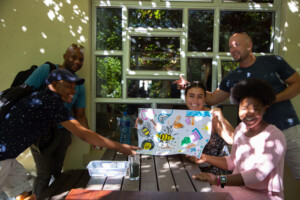
PGDip students in learning spaces in and around the Sustainability Institute
From a content point of view, the approach in the module and indeed the programme, focuses in on several sustainability frameworks that demonstrate a range of values and approaches to solving for what is unsustainable. Going beyond analyses of what is unsustainable, the module draws on emerging literature on sustainability transitions and transformations. These bodies of literature grapple with the dynamics, scales and modalities of change. During the module, students will have the opportunity to engage with the diverse strategies of action by change agents working across diverse contexts, thus linking the theories and practices of sustainability.
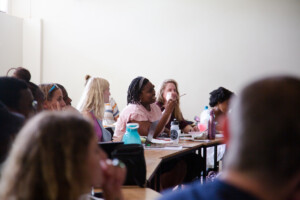
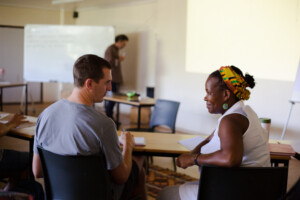
Collaboration and group discussion form an integral part of the approach in the PGDip.
Learning, teaching and assessment in the PGDip
Students engaged challenging content and discussion in lectures, through journal exercises and grappled with what it means to work collaboratively in group projects. Art, free writing and generous conversations sat comfortably alongside tests and presentations to develop a range of awarenesses and capabilities to enact the diverse work of sustainability in real time.
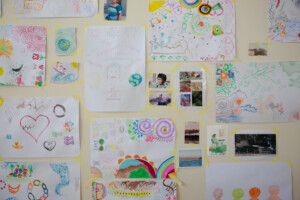
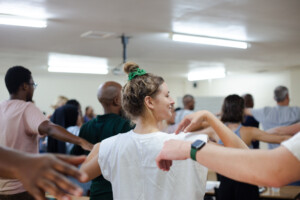
Creative practices help to connect students and engage multiple ways of learning and reflecting
Teaching expertise based at the Centre for Sustainability Transitions
The module was convened by CST Researchers Dr Megan Davies and Nina Callaghan. The convening team also included the Programme Learning Coordinator, A’ishah Ebrahim, who, as a recent graduate of the PGDip strengthen the links between academic staff and students and pays careful attention to the student learning experience within and between each module on the PGDip. In addition, Jerome Chimponda, a PGDip graduate and current MPhil student at the CST, helped out as the Module Learning Facilitator for the Sustainable Development module.
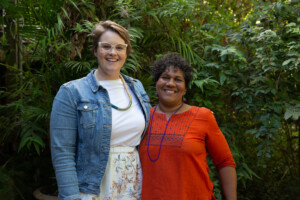
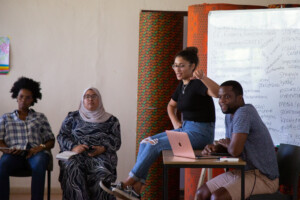
Megan and Nina are graduates of the PGDip and are inspired by the transformative potential of the programme. Jerome and A’ishah facilitated a session on ‘how to hack you PGDip, which provided tips and tricks for a successful learning experience in the PGDip
Students also had opportunities to connect with experts who brought a wealth of knowledge and expertise to the classroom, including CST Co-Directors Prof Mark Swilling and Prof Oonsie Biggs. The module also brought in a range of CST researchers, research fellows and partners to enliven the inquiry into global, regional, and local sustainability challenges and initiatives.
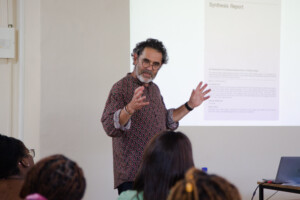
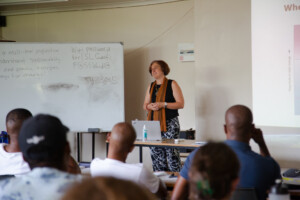
Mark and Oonsie brought in leading ideas around sustainability transitions and transformations approaches.
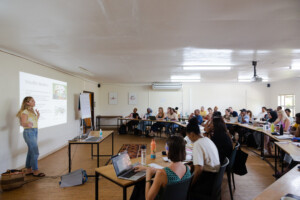
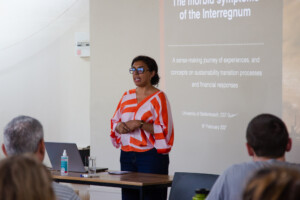
A transformative student experience
Students experiences the module as an expansive and challenging start to their postgraduate studies. For many, the teaching, learning and assessment approach in the PGDip is a radical departure from previous experiences of higher education. Instead, the programme is an invitation into alternative ways of knowing, being, and seeing that are vital for the possibility of a better world.
Place-based learning at the Sustainability Institute practice hub
The venue for the module nurtured a learning culture inspired by the place-based ethic of innovation and care at the Sustainability Institute practice hub. Rituals of morning movement, routines around the garden, kitchen and children’s learning centres invited students into living labs of what more sustainable alternatives could look like in the world. Much more than a venue for the University programme, the SI is an example of thriving social and ecological experiments, lending the PGDip the perfect experiential learning environment.
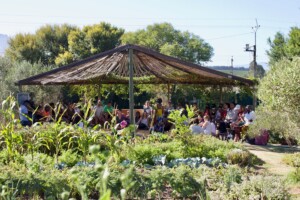
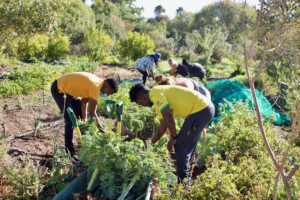
Foundation for learning experience
This first module of the PGDip in Sustainable Development provided students with a solid foundation in the principles and practices of sustainable development, with a focus on sustainability transitions and transformations. The programme’s students are looking forward to grappling with sustainability challenges within their networks and through classroom experiences, begin a series of self-(re)discovery and realisation of their own potential for transformation.

